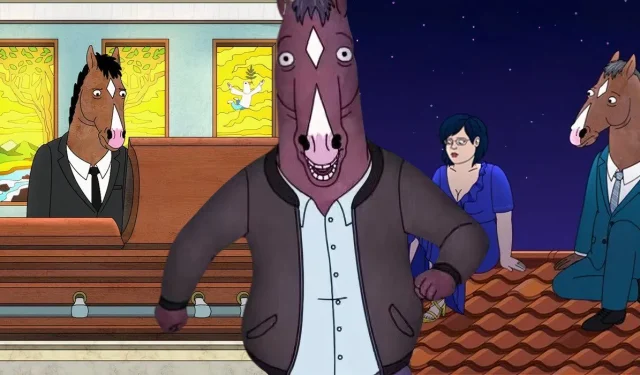
When it comes to the best episodes of BoJack Horseman, this acclaimed Netflix series transcends typical adult animation stereotypes. Often, adult animated shows are synonymous with crude humor, graphic violence, and unrelenting explicit language. However, BoJack Horseman bravely navigates complex adult themes, providing a raw examination of depression, addiction, and even thoughts of suicide. Throughout its run, the series undeniably portrays the harrowing realities of its characters, demonstrating their struggles and the consequences of their choices.
Unlike many shows in the genre, BoJack Horseman delves into the intricacies of the human experience, showcasing a protagonist who often grapples with his own sense of irredeemability. The show masterfully intertwines surreal comedy with deeply rooted tragedy, offering profound insights that resonate well beyond its animated format and anthropomorphic characters.
10 “The Showstopper”
Season 5, Episode 11
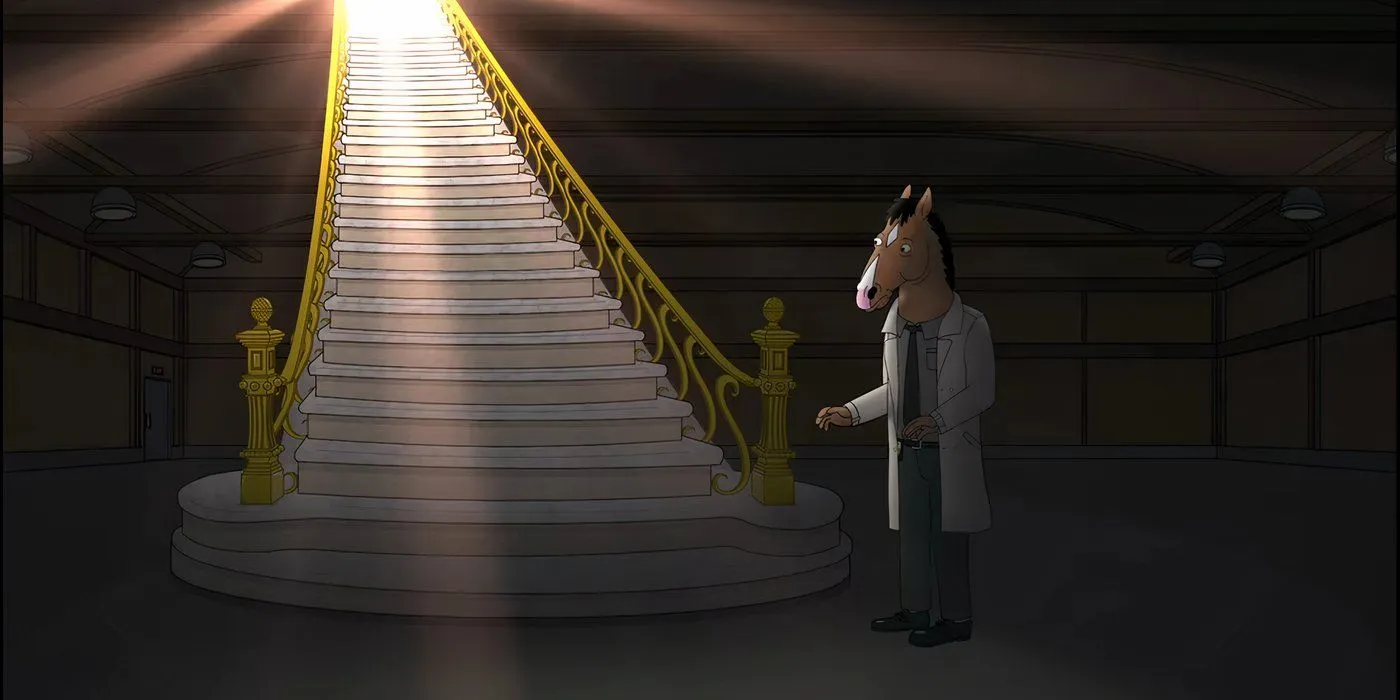
By the time viewers reach Season 5, the serious implications of BoJack’s addiction become painfully evident. In the episode “The Showstopper,”the main character’s dependency on painkillers spirals out of control, leading him to emotionally and physically deteriorate. His intense struggles culminate in a devastating attack on Gina, a betrayal that amplifies his overwhelming guilt and juxtaposes his attempts to protect her earlier in the season.
This episode serves as a powerful metaphor for the dual addictions to both fame and substance abuse. BoJack’s inability to separate reality from his performances is highlighted tragically, leaving Gina emotionally scarred—illustrating that his self-destructive tendencies harm those closest to him just as much as they harm himself.
9 “Time’s Arrow”
Season 4, Episode 11
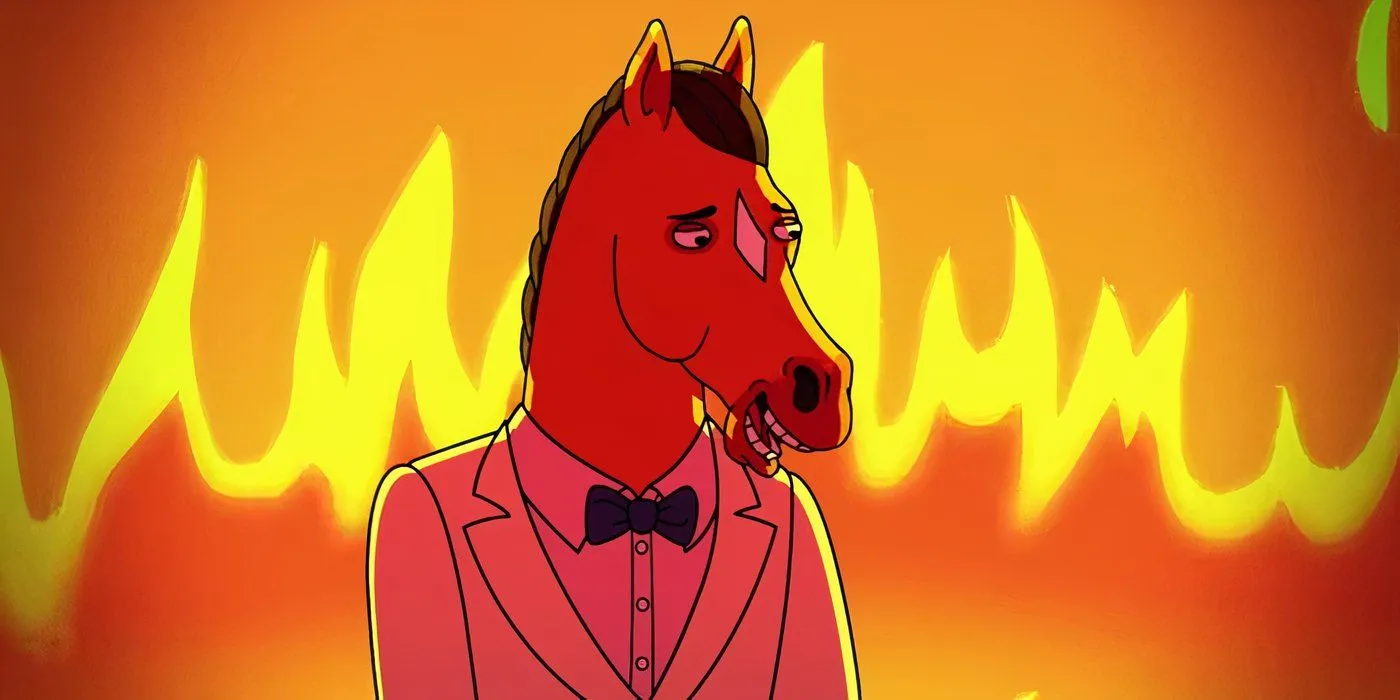
In a poignant exploration of BoJack’s formative years, “Time’s Arrow”delves into the psychological scars left by his upbringing. Through a narrative that vividly portrays childhood events—ranging from family tragedies to maternal dysfunction—it illustrates how these experiences shaped BoJack into the flawed adult he becomes.
This episode poignantly portrays Beatrice’s descent into dementia, casting a sympathetic light on her character, while simultaneously laying bare the dysfunction stemming from generational trauma. The episode’s fragmented memories provide insight into the chaos wrought by both Beatrice’s mental decline and her turbulent relationship with her son, BoJack.
8 “Stupid Piece Of Sh*t”
Season 4, Episode 6
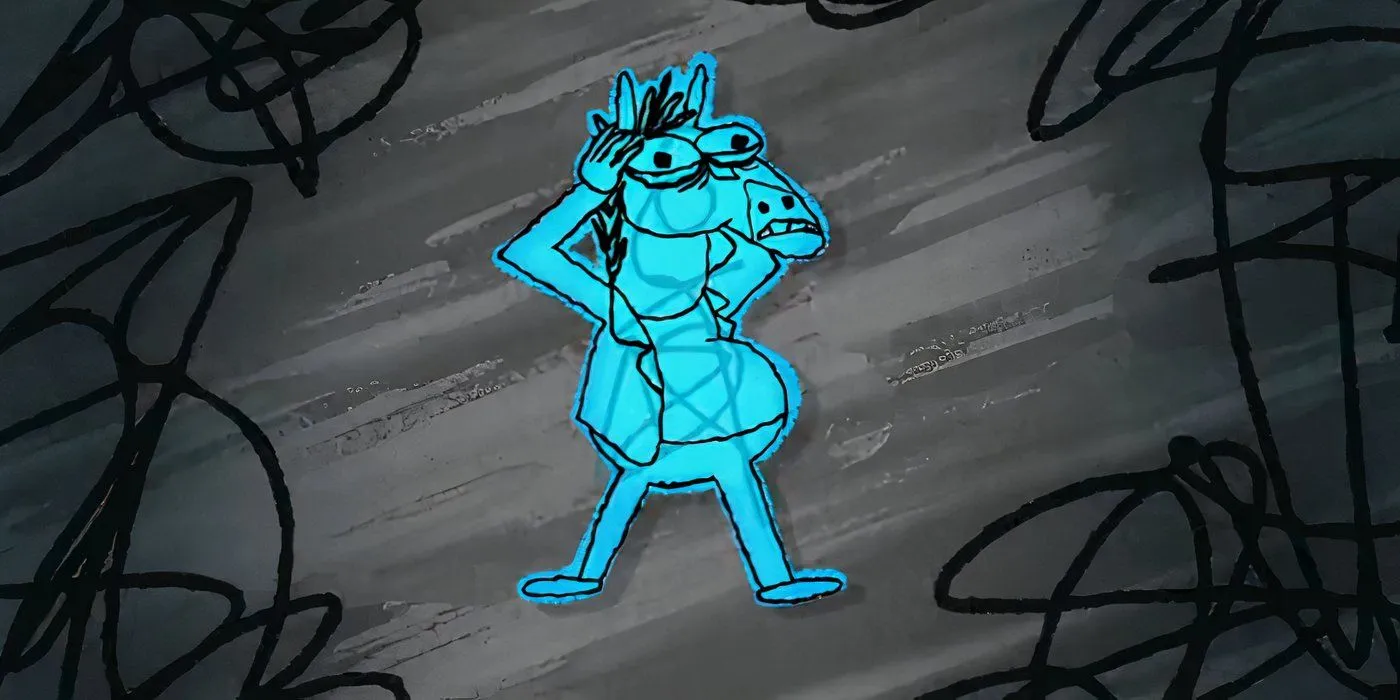
Known for its unique storytelling approach, this Season 4 episode creatively captures BoJack’s internal struggles. The narrative stylizes its animation to reflect BoJack’s mental state, using an abstraction that poignantly represents his emotional turmoil.
A significant revelation occurs when it is unveiled that Hollyhock shares BoJack’s critical inner voice. This not only connects the two characters but also highlights the pervasive nature of negative self-talk, uncovering the psychological roots of their self-destructive behaviors in a manner that underscores the series’ honest portrayal of mental health.
7 “The Dog Days Are Over”
Season 5, Episode 2
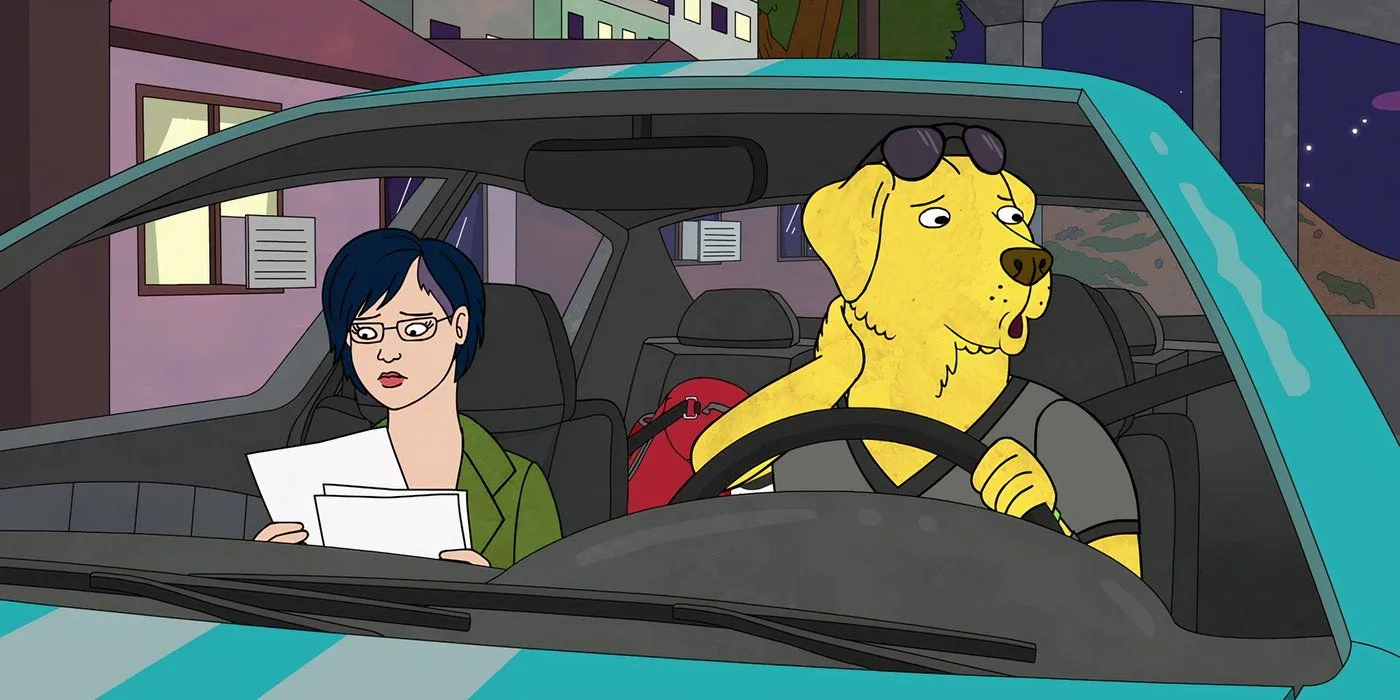
In a departure from focusing on BoJack himself, this episode shines a light on Diane as she takes a trip to Vietnam to navigate the aftermath of her divorce. While pursuing a personal article, Diane’s journey reveals deeper insights into her character. The episode beautifully captures her growth and self-discovery while challenging expectations of narrative focus.
This distinctive character exploration proves that even when the titular character is absent, the series can deliver impactful emotional narratives, showcasing the intersection of personal growth and healing.
6 “Nice While It Lasted”
Season 6, Episode 16
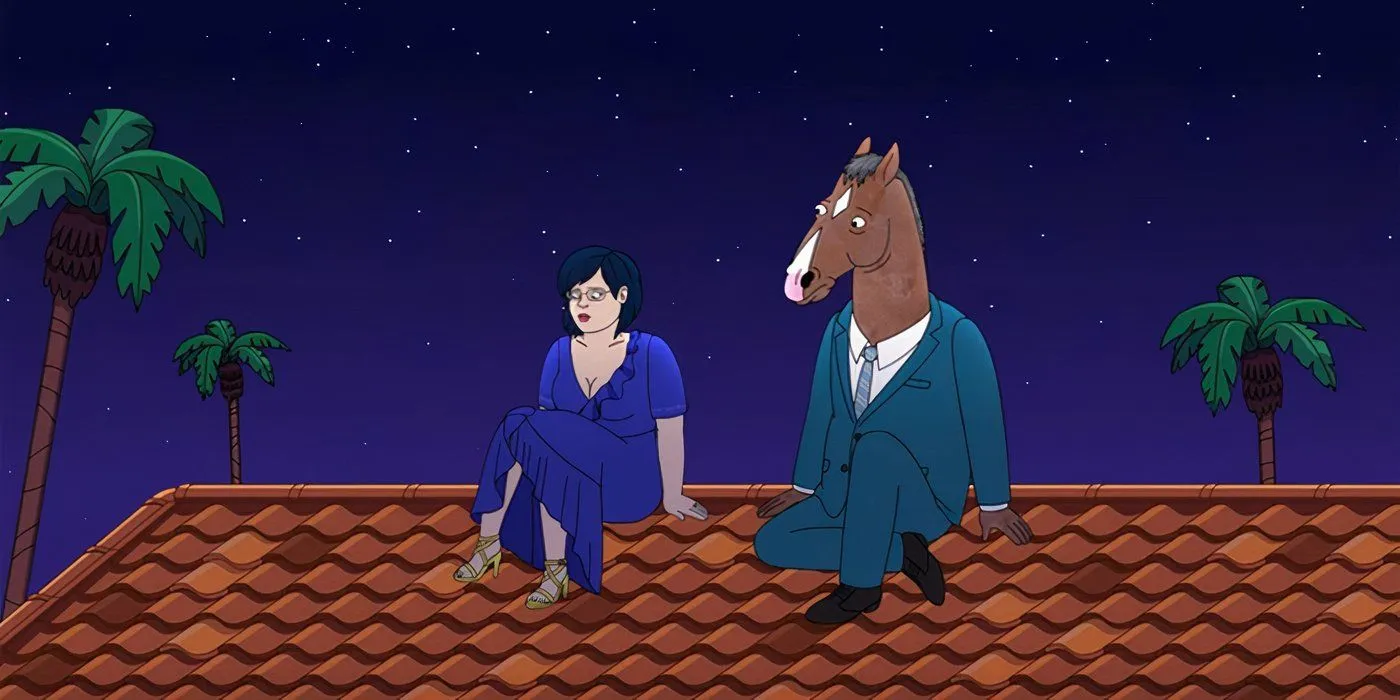
The series finale of BoJack Horseman was laden with anticipation and anxiety about how it would address the character’s turbulent journey. While some fans speculated that a tragic ending was inevitable, the narrative took a more subtle approach. As BoJack spends a night on leave from jail to attend Princess Carolyn’s wedding, he has heartfelt interactions with those he has impacted throughout the series.
This poignant closure allows viewers to bid farewell to key characters while underscoring their growth in relation to BoJack. The series ends on a reflective note, showcasing BoJack’s continued journey, which resonates with those grappling with personal struggles.
5 “Fish Out Of Water”
Season 3, Episode 4
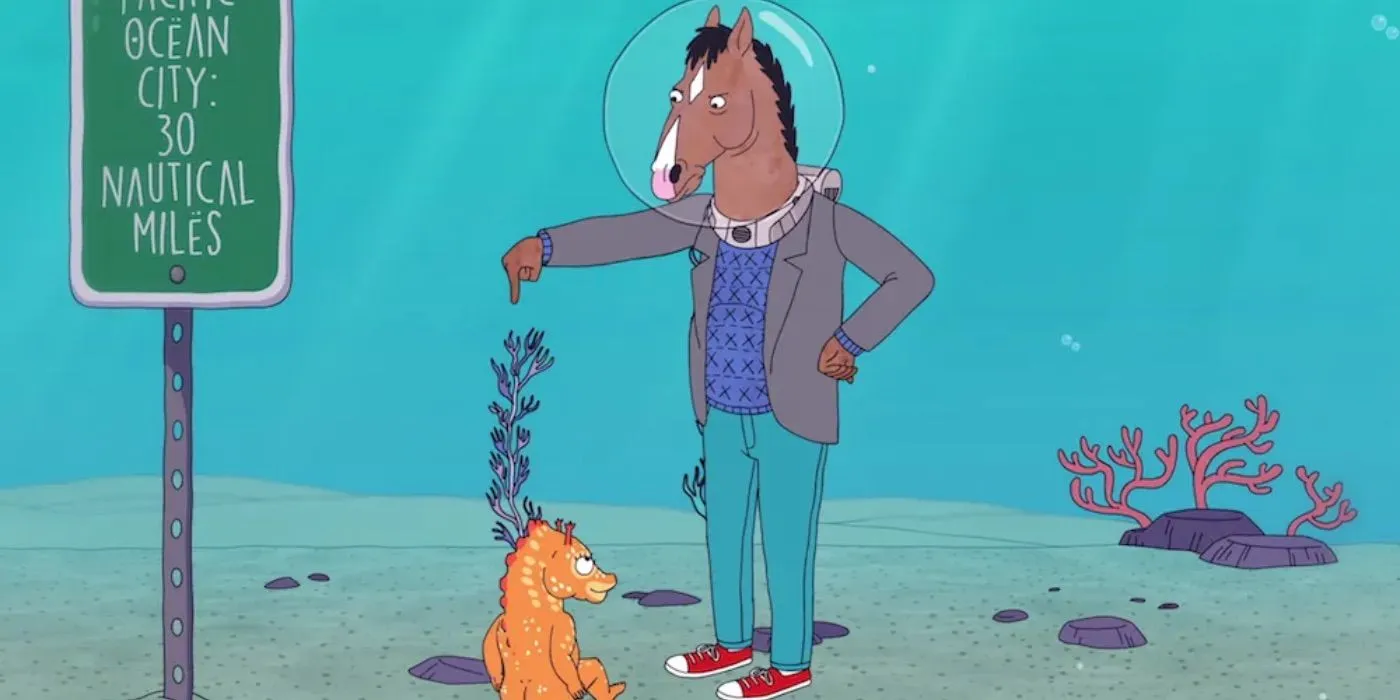
In “Fish Out of Water,”BoJack is thrust into an entirely unfamiliar environment—a surreal underwater film festival, adding a layer of innovation to the series. Stripped of verbal communication due to a fishbowl helmet, the episode unfolds primarily through visual storytelling, creating an immersive experience without dialogue.
This unique format emphasizes BoJack’s personal journey as he seeks to return a lost baby seahorse to its father, blending stunning animation with humor while allowing moments of genuine introspection.
4 “Escape From L.A.”
Season 2, Episode 11
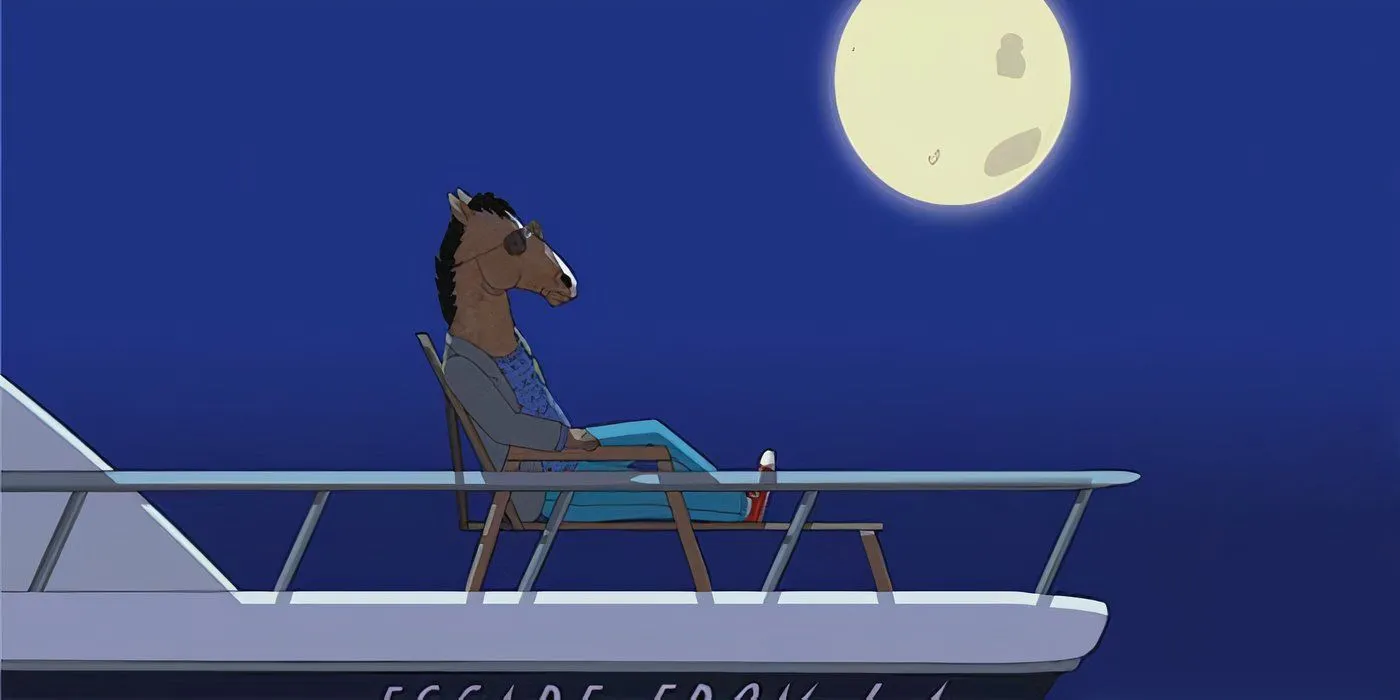
In “Escape From L.A.,”viewers witness the consequences of BoJack’s destructive behavior when he reconnects with a crush from his past, Charlotte. While staying with her and interacting with her daughter Penny, he makes a decision that has lasting implications. This episode starkly highlights how BoJack’s choices reverberate throughout his life and impact those around him, marking a pivotal moment in his character arc.
It signifies a turning point in the series, where personal accountability becomes paramount as BoJack’s actions begin to materially affect his journey toward redemption.
3 “That’s Too Much, Man!”
Season 3, Episode 11

This episode is arguably the most heart-wrenching of the entire series. Upon learning that he is not in the running for an Oscar for “Secretariat,”BoJack spirals into a self-destructive binge with Sarah Lynn, a recently sober friend. Their night leads to tragic outcomes when she succumbs to a heroin overdose—an impactful moment that starkly illustrates the destructive cycles of addiction.
As BoJack trails into despair within the planetarium, the weight of Sarah Lynn’s death haunts him, showcasing one of the most heart-rending moments in the series where he desperately calls her name, only to receive silence.
2 “The View From Halfway Down”
Season 6, Episode 15
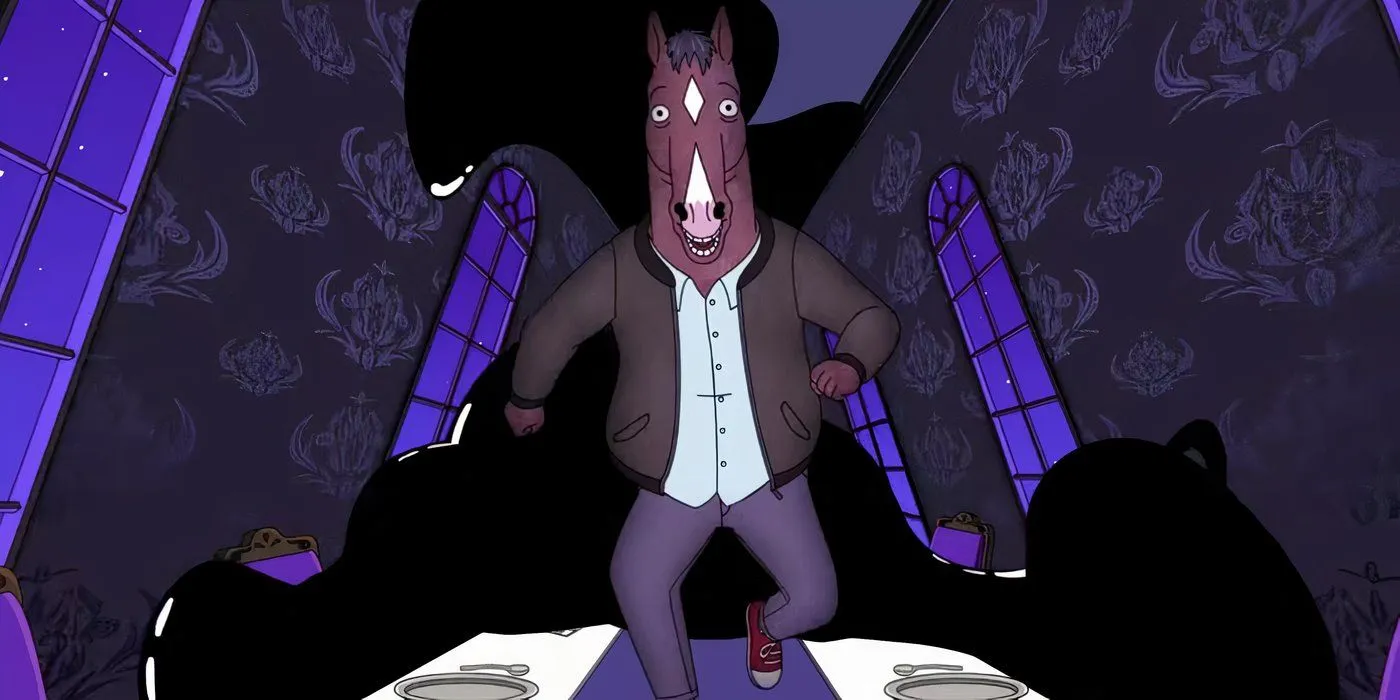
Considered one of the most emotionally poignant episodes, “The View from Halfway Down”serves as the second-to-last episode of the series, exploring existential themes surrounding life and death. In an unsettling dinner party scene, past characters who have died come back to confront BoJack about his choices and their consequences. Depictions of their grievances highlight the heavy burden of guilt BoJack carries throughout his life.
This haunting narrative forces viewers to confront the harsh realities of BoJack’s life, underscoring a sensitive exploration of worthiness and redemption in the wake of personal trauma.
1 “Free Churro”
Season 5, Episode 6
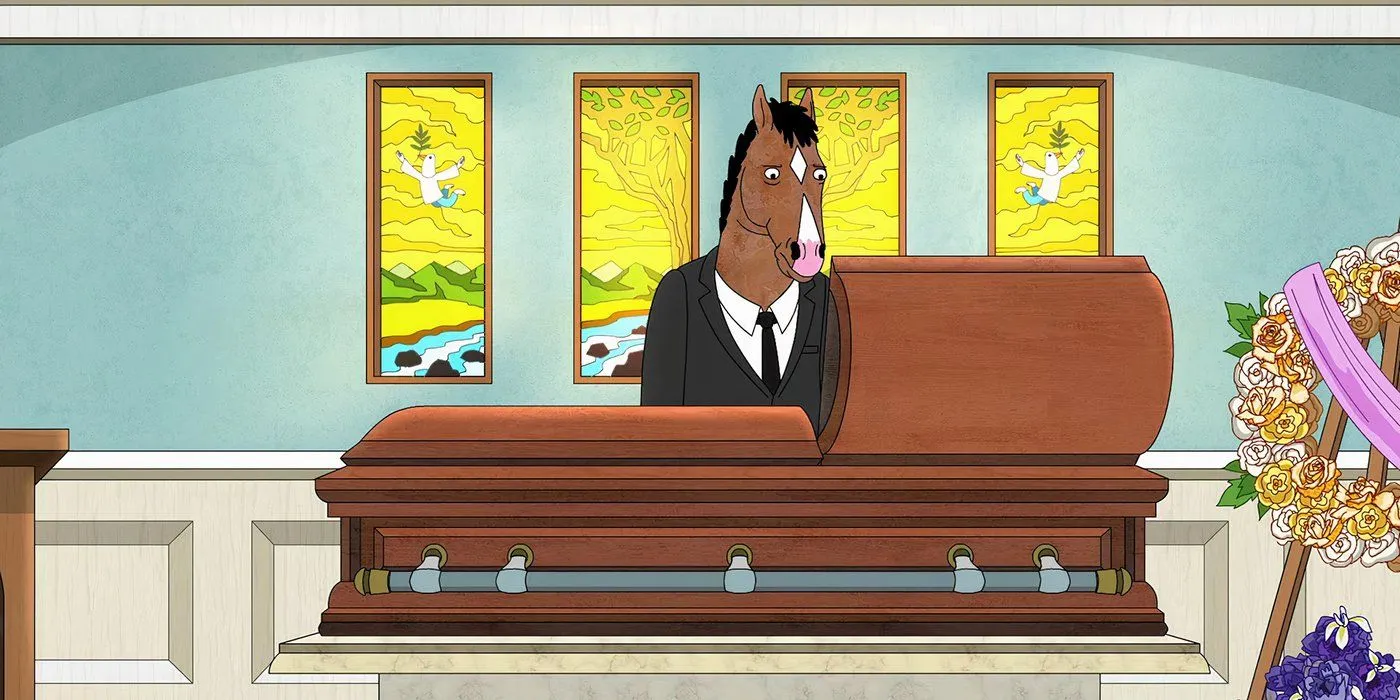
“Free Churro”stands as a hallmark of not just BoJack Horseman’s narrative style but of animated television as a whole. Mostly composed of a single, powerful monologue during BoJack’s mother’s funeral, it encapsulates a complex mix of love and disappointment. Despite the emotional turmoil, it skillfully intertwines humor with the profound exploration of grief.
BoJack’s reflections on his mother’s impact play out in a way that is both heartbreaking and deeply insightful, solidifying the series as a leading figure in tackling themes of familial relationships and personal trauma.
Leave a Reply